Speech-Language Pathologists at CORA specialize in atypical eating and drinking behaviors to help your child maximize functional abilities of feeding and swallowing.
Is your child having problems with chewing his or her food, swallowing food or liquid, or handling different food textures? Does your child only eat a limited variety of foods? Are you concerned about whether your child’s feeding and swallowing problems are affecting his or her nutrition and growth? If mealtime has become stressful and a struggle, then it may be time for you and your child to see a licensed speech-language pathologist (SLP) for an evaluation.
First, let’s explore the anatomy of the mouth, throat, and larynx (voicebox) to help provide a better understanding of how the process works. We’ll also address the basics of feeding and swallowing including a few of the different ways children struggle.
What do we mean by feeding and swallowing?
When SLPs talk about feeding, they are describing the entire experience of being aware of food or drink, bringing it to and taking it into the mouth, and swallowing. Swallowing includes four phases: 1) the oral preparatory phase in which food and drink are processed in the mouth; 2) the oral phase in which food and drink move toward the back of the mouth; 3) the pharyngeal phase in which the food or drink is squeezed downward through the throat; 4) and the esophageal phase in which the food or drink is moved downward through the esophagus toward the stomach.
What can go wrong with feeding and swallowing?
There are so many ways that children can have problems with feeding and swallowing! You may be concerned because your child seems to “choke” on their food, frequently spits up or vomits while eating, or coughs, gags, or makes gurgle sounds during meals. In some cases, your child may have excessive drooling, experience trouble keeping food in his or her mouth, or seem to have a harder time chewing than other children in the same age group. Your child may turn away from or spit out more complex textures while having no difficulties with smooth textures. Or your child may only eat a small number of different foods. These are only some of the ways that children can have problems with feeding or swallowing.
What role do speech-language pathologists have in feeding and swallowing?
SLPs are the experts in feeding and swallowing. At CORA, SLPs who specialize in feeding and swallowing have an advanced knowledge of the anatomy of the mouth, throat, and larynx (voicebox), the mechanisms of chewing and swallowing, the ways that the body normally protects the airway during swallowing, and the ways that swallowing problems can occur. They have training in how to help children who have developed aversions to eating a range of foods or who have sensory reactions to certain types of foods. Our feeding and swallowing experts also have training in helping children with a variety of medical conditions and special needs to improve their feeding skills and achieve safer swallowing.
CORA’s speech-language pathologists are here to help!
If you have concerns about your child’s feeding skills and swallowing abilities, we are ready to help! SLPs will not only address concerns related to feeding and swallowing, but also concerns about speech, understanding of language, expressive language, voice, fluency and stuttering, and social communication skills.
Your health care provider can discuss your different options and provide a referral to talk with an expert. When you arrive at CORA, we will conduct a comprehensive evaluation and let you know how we can help your child improve his or her feeding and swallowing.
Want more information on speech-language pathology?
The ASHA website is a great resource! If you feel the time is right to seek an evaluation for your child, please contact our CORA clinic nearest you or schedule an appointment today. With 24-48 hour scheduling and over 4,000 insurances accepted, our speech-language pathologists are ready to serve you in the clinic or in your home with telehealth now available.

